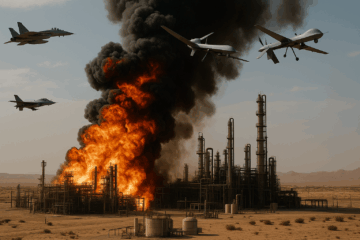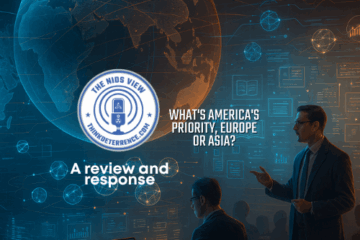Summary Report
Events of Significance
-
Nuclear Deterrent Seminar: Scheduled for December 6, 2024, focusing on China’s nuclear buildup with Christopher Yeaw from the University of Nebraska.
-
Triad Symposium: Announced for June 24, 2025, at Louisiana State University in Shreveport, hosted by LSUS, NIDS, and BRF Defense in cooperation with the USAF Global Strike Command.
Quotes of the Week
-
CNN, November 5, 2024: “Kamala Harris Predicted to Win By Nearly Every Major Forecaster.”
-
President-elect Donald Trump: “I am honored to nominate Chairwoman Elise Stefanik to serve in my Cabinet as U.S. Ambassador to the United Nations.She is an incredibly strong, tough, and smart America First fighter.”
-
Gen. Thomas A. Bussiere, AFGSC: “An airborne launch validates the survivability of our ICBMs, which serve as the strategic backstop of our nation’s defense and defense of allies and partners.”
Strategic Developments
- Ukraine’s Nuclear Decision: With Trump’s election, Ukraine may consider nuclear options due to anticipated reduced U.S. support.
- Russian ICBM Launch: A Yars ICBM was loaded into a silo launcher at the Kozelsk missile base, signaling potential nuclear escalation.
- MM III Test Flight: The U.S. Air Force conducted a test flight of an unarmed Minuteman III ICBM from Vandenberg Space Force Base.
- Nuclear Modernization: The U.S. is advancing its nuclear arsenal, including new B-21 bombers and the Sentinel ICBM program.
- International Arms Control: The erosion of arms control treaties, such as New START, raises concerns about a new arms race.
Five Key Takeaways
-
Political Shift: President Trump’s victory and the Republican control of the Senate and likely the House signal significant changes in U.S. foreign and defense policies.
-
Nuclear Deterrence Focus: Upcoming events like the Nuclear Deterrent Seminar and Triad Symposium highlight the importance of nuclear deterrence in U.S. national security strategy.
-
Ukraine’s Uncertain Future: Ukraine faces a critical decision on its defense strategy, potentially considering nuclear options due to expected changes in U.S. support.
-
Nuclear Modernization: The U.S. is heavily investing in modernizing its nuclear forces, including new bombers and ICBMs, amid rising global tensions.
-
Arms Control Challenges: The decline of international arms control agreements poses a risk of escalating nuclear arms races, particularly with Russia and China.
About the Author

Peter Huessy
Mr. Peter Huessy is President of his own defense consulting firm, Geostrategic Analysis, founded in 1981, and through 2021, Director of Strategic Deterrent Studies at the Mitchell Institute on Aerospace Studies. He was the senior defense consultant at the National Defense University Foundation for 22 years. He was the National Security Fellow at the AFPC, and Senior Defense Consultant at the Air Force Association from 2011-2016.
Mr. Huessy has served as an expert defense and national security analyst for over 50 years, helping his clients cover congressional activities, arms control group efforts, nuclear armed states actions, and US administration nuclear related policy, budgets, and strategies, while monitoring budget and policy developments on nuclear deterrence, ICBM modernization, nuclear arms control, and overall nuclear modernization.
He has also covered nuclear terrorism, counterterrorism, immigration, state-sponsored terrorism, missile defense, weapons of mass destruction, especially US-Israeli joint defense efforts, nuclear deterrence, arms control, proliferation, as well as tactical and strategic air, airlift, space and nuclear matters and such state and non-state actors as North Korea, China, Iran, Syria, Venezuela and Hezbollah, Hamas, and Al Qaeda. This also includes monitoring activities of think tanks, non-governmental organizations, and other US government departments, as well as projecting future actions of Congress in this area. His specialty is developing and implementing public policy campaigns to secure support for important national security objectives. And analyzing nuclear related technology and its impact on public policy, a study of which he prepared for the Aerospace Corporation in 2019.




